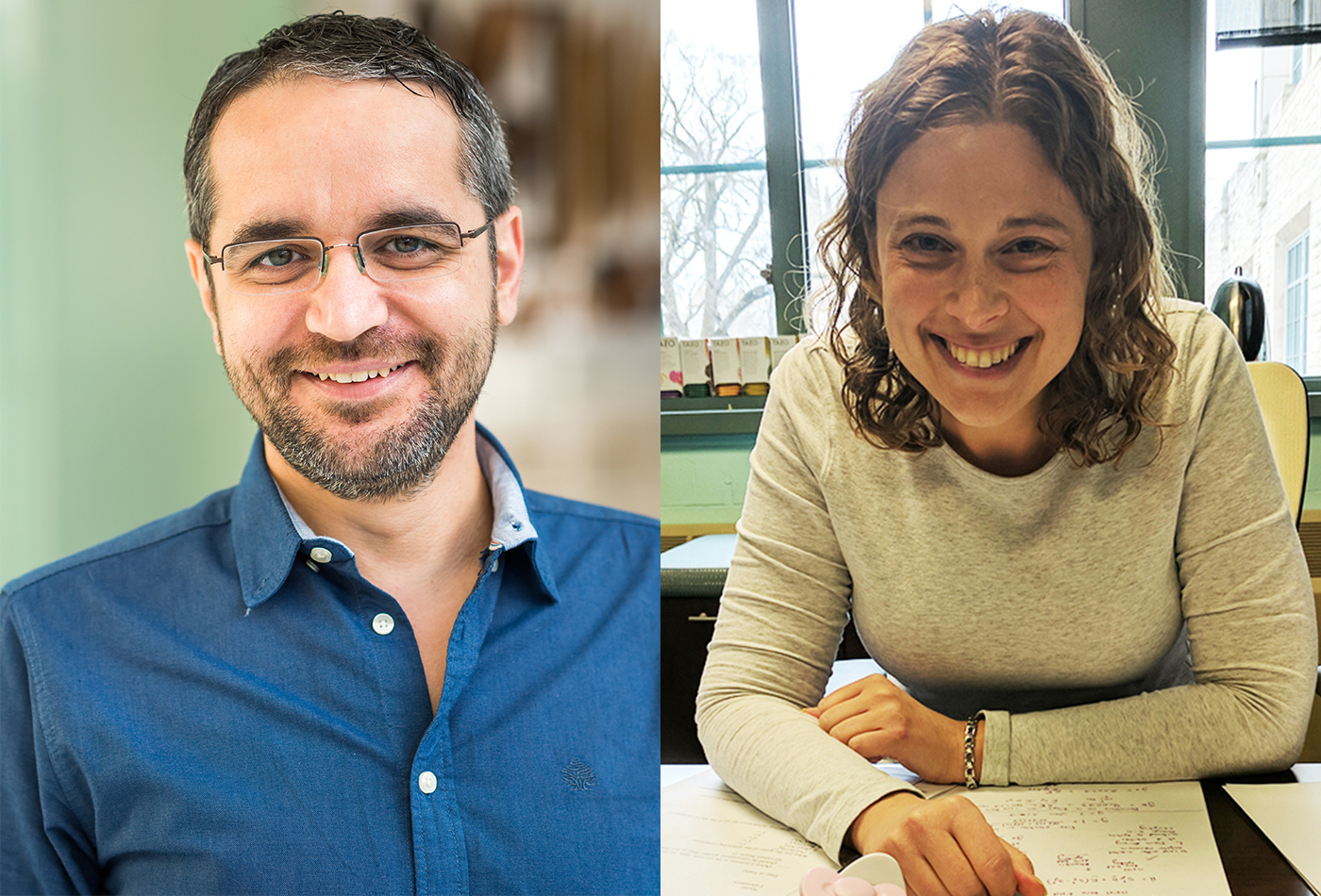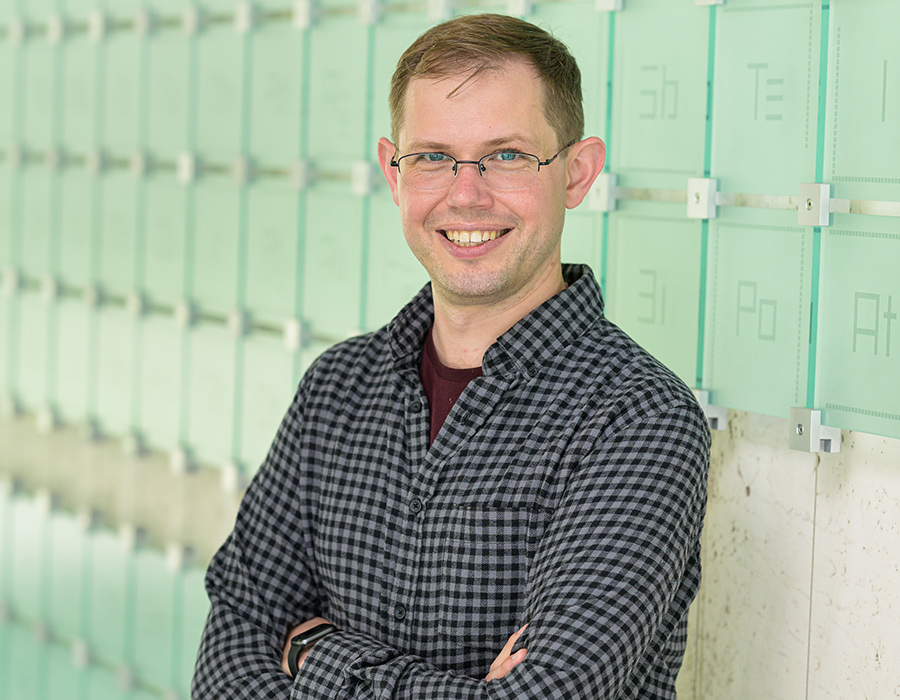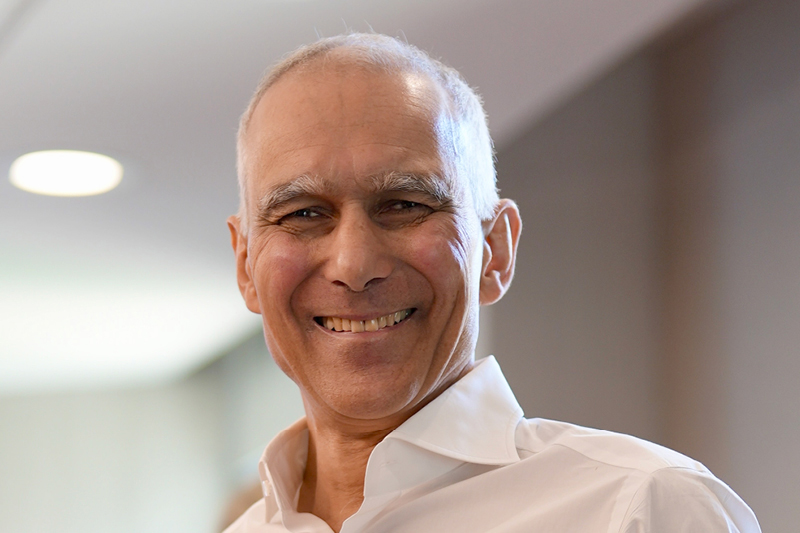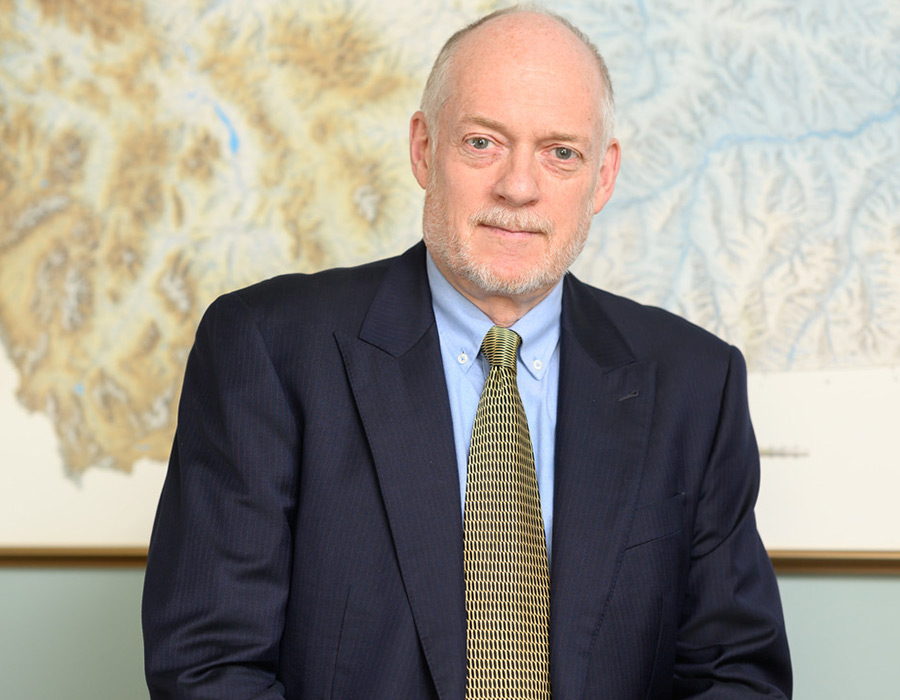Dincă and Freedman named 2021 Blavatnik Award Finalists
Blavatnik Scholars are recognized for their contributions to the advancement of the human condition through scientific progress.
Showcasing America’s most promising young scientists and engineers, the Blavatnik Family Foundation and the New York Academy of Sciences recently named Professor Mircea Dincă and soon-to-be MIT Chemistry faculty member Professor Danna Freedman two of thirty-one finalists for the world’s largest unrestricted prize honoring early-career scientists and engineers.
Three winners of the Blavatnik National Awards for Young Scientists – in life sciences, chemistry, and physical sciences and engineering – will be announced on July 20, each receiving $250,000 as a Blavatnik National Awards Laureate.
The finalists, culled from 298 nominations by 157 United States research institutions across 38 states, have made trailblazing discoveries in wide-ranging fields, from the neuroscience of addiction to the development of gene-editing technologies, from designing next-generation battery storage to understanding the origins of photosynthesis, from making improvements in computer vision to pioneering new frontiers in polymer chemistry. Descriptions of the honorees’ research are listed below.
“Each day, young scientists tirelessly seek solutions to humanity’s greatest challenges,“ said Len Blavatnik, founder and chairman of Access Industries, and head of the Blavatnik Family Foundation. “The Blavatnik Awards recognize this scientific brilliance and tenacity as we honor these 31 finalists. We congratulate them on their accomplishments and look forward to their continued, future discoveries and success.”
Most materials that conduct electricity are densely packed metals. Dincă has proven that certain porous materials—metal-organic frameworks (or MOFs)—can also conduct electricity and be used in fuel cells and supercapacitors, which play critical roles in green technology systems. Taking inspiration from how individual molecules can conduct electricity, Dincă achieved a conducting MOF by weaving a network of conducting molecules into a porous solid. Dincă has operated his MOFs as supercapacitors and can retain performance after repeated use, an essential property for their use in commercial products. Dincă is partnering with Lamborghini to incorporate MOFs for energy storage in future electric supercars.
The second quantum revolution brings the promise of incredibly powerful technological tools, with quantum computers and sensors customized to specific tasks. Freedman studies quantum bits (or qubits, the building blocks of quantum computers) based on specific properties of individual molecules. Molecules are uniquely well-suited for a bespoke quantum system: tuning their atomic composition and structure adjusts their performance. Freedman has elevated molecular qubits to the cutting edge of quantum information science, having achieved record stability and demonstrating optical read-out of a molecular qubit state. Freedman has also pushed new frontiers in material synthesis: she has achieved never-before-seen compounds using extremely high pressures. Freedman is opening up new possibilities to design materials for specific functions by making many more combinations of elements possible.
President and CEO of the New York Academy of Sciences Nicholas B. Dirks said: “Each year, it is a complete joy to see the very ‘best of the best’ of American science represented by the Blavatnik National Awards Finalists.”
“On behalf of the New York Academy of Sciences, we are extremely proud to administer the Blavatnik National Awards. This prize honors scientists at a pivotal career juncture, where support and recognition can make a huge impact on their career and their potential for future innovations and discoveries,” he said.
Three highly respected independent juries – each representing one of the awards’ categories – will determine the winning Laureates, who must be faculty-level scientific researchers and engineers 42 years of age or younger.
The Blavatnik Awards for Young Scientists will celebrate the 2021 Blavatnik National Awards honorees in a ceremony on Sept. 28 at the American Museum of Natural History in New York.
About the Blavatnik Award for Young Scientists
The Blavatnik Awards for Young Scientists, established by the Blavatnik Family Foundation in the U.S. in 2007 and independently administered by the New York Academy of Sciences, began by identifying outstanding regional scientific talent in New York, New Jersey and Connecticut. The Blavatnik National Awards were first awarded in 2014 and, in 2017, the Awards were expanded to honor faculty-rank scientists in the United Kingdom and in Israel. By the close of 2021, the Blavatnik Awards will have awarded prizes totaling $11.9 million. Sixty-one percent of all Award recipients are immigrants to the country in which they were recognized and hail from 47 countries across six continents, reflecting the Blavatnik Family Foundation’s recognition that important science is a global enterprise.
About the Blavatnik Family Foundation
The Blavatnik Family Foundation is an active supporter of world-renowned educational, scientific, cultural and charitable institutions in the United States, the United Kingdom, Israel, Russia and other countries throughout the world. The foundation is headed by Len Blavatnik, a global industrialist and philanthropist and the founder and chairman of Access Industries, a privately held industrial group based in the U.S. with global strategic interests.





